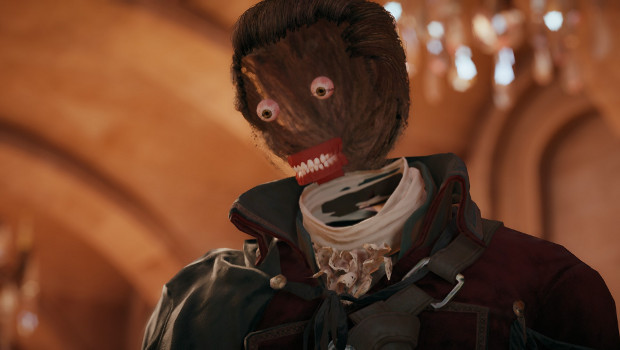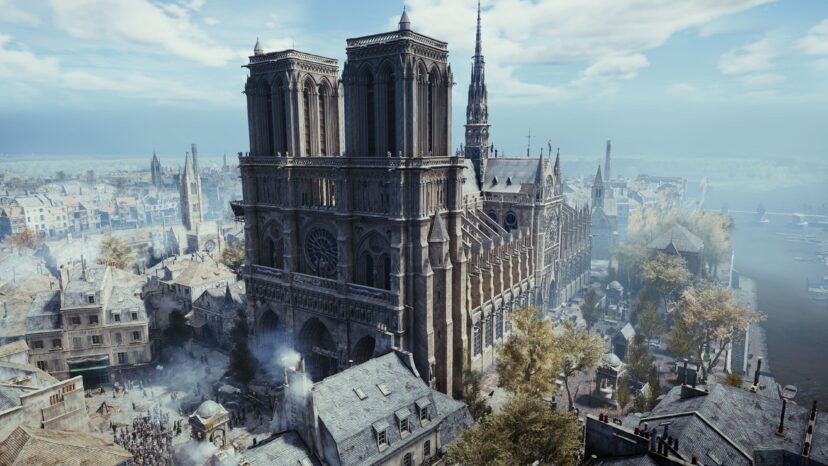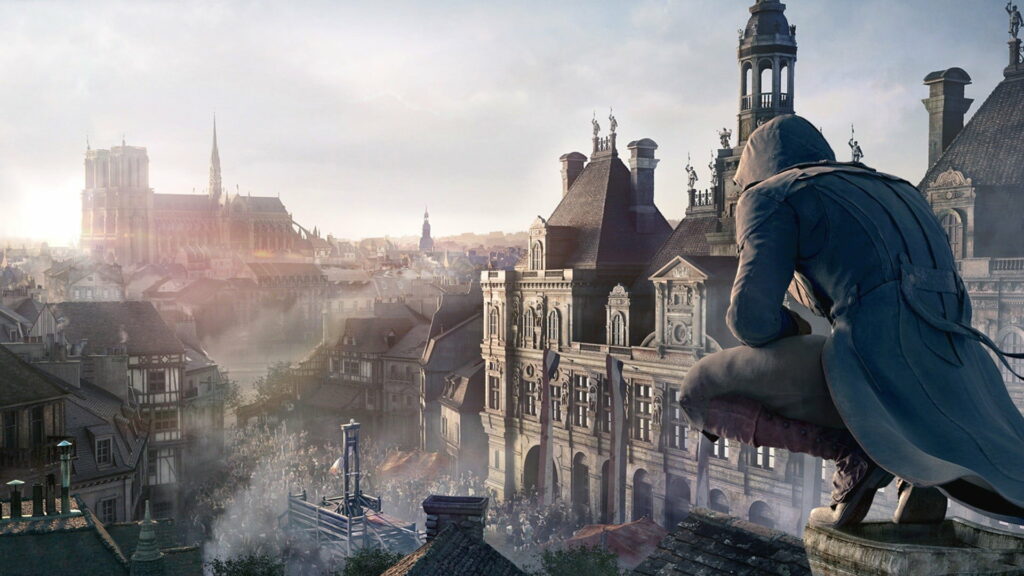- Assassin’s Creed Unity was a complete disaster for Ubisoft at release.
- However, the game has become a beloved release today.
- It marked a bold transition to a new era for the IP, completely rebuilding the foundations of this series.
- Paris remains one of the franchise’s best settings, rivaling even the modern renditions of locations like Baghdad from Assassin’s Creed Mirage.
2014 was an important year in Ubisoft’s history. The French gaming giant had become a household name for AAA titles after its success with franchises like Assassin’s Creed, and by this year, it was firing on all cylinders.
A year after PS4 and Xbox One launched, the developer released new IPs like Watch Dogs and The Crew, in addition to Far Cry 4. One of its most ambitious games came out in the same year, with Assassin’s Creed Unity boasting a confident new approach to a franchise that has sold over 200 million units to date.
Perhaps too ambitious for its own good, running Assassin’s Creed Unity proved to be too tall an order for the then-current-generation consoles. Amidst a barely functioning launch, this gem of a game was quickly forgotten, and Ubisoft would never show a similar level of ambition with future Assassin’s Creed games.
Why it matters: Despite its state in 2014, I always found it difficult to dislike this entry, and going back to it today proves just how ahead of its time Assassin’s Creed Unity was.
What Went Wrong In 2014
Assassin’s Creed Unity was barely functional at release, especially on consoles.
The game ran at poor frame rates, the movement had many rough edges, bug counts were at a historical high for Assassin’s Creed, and its narrative was weaker than Ubisoft’s best works.
It practically became a meme, illustrated by the many images of broken character models you can find online today. The situation was so bad that Ubisoft made significant cuts for its next game.
The next-gen crowd system was scrapped for Syndicate, London was not as detailed, and the game showed less ambition. However, fans today have begun to appreciate Assassin’s Creed Unity for everything it did right.
Redefining Assassin’s Creed
The series went through its most extensive revision in 2014. Assassin’s Creed Unity immediately made its predecessors seem ancient by comparison.
I vividly remember the first time this game was shown off, watching in awe as the French gaming giant pushed the limits of its open-world formula. Instead of applying a fresh coat of paint, Ubisoft practically reworked every part of this franchise.
Parkour had an unprecedented flair in Assassin’s Creed Unity. Controlled descents were introduced for the first time, and Arno’s animations were a sight to behold as he elegantly leaped from building to building.
This part of the game remains unrivaled nearly a decade later. The parkour had enough depth to push players toward mastery of the movement, but it also ensured a satisfying experience through basic gameplay.
To encourage a stealthy approach, Ubisoft introduced a more challenging combat system. Relying on stealth and tools became more meaningful, and the ability to manually crouch after seven years made stealth more viable than in past games.
While a bit clunky, this combat system worked well with the game’s overall design. It ensured enemies had more of an impact on each encounter as opposed to past games where assassins would clear hordes of enemies with ease.
Like its predecessors, Assassin’s Creed Unity shipped with a multiplayer mode at launch. However, gone was the PvP mode from the older games, being replaced by co-op missions that were incredibly entertaining when playing with a group of friends.
Paris Blew Everything Away In 2014
I found Ubisoft’s tech to be the most impressive part of Assassin’s Creed Unity. Taking to the bustling streets of Paris, the French gaming giant aimed for a photorealistic aesthetic, and it paid off.
Nine years later, side-by-side comparisons against Assassin’s Creed Mirage, the team’s latest take on the classic formula, show that this 2014 entry has aged spectacularly. From breathtaking lighting to an incredible sense of scale, Ubisoft’s ambition was on full display in each part of this game.
The title also introduced detailed interiors for many of its structures. This led to an authentic recreation of Paris that was oozing with atmosphere. Combining the stylish parkour with this open world, Ubisoft had a winning formula on its hands.
Paris was built with a rough 1:1 scale in mind, and each part of the city was packed with mobs of protesters in this chaotic era of French history. This level of crowd density was unheard of at the time,
With NPCs often numbered in the hundreds on random streets, Paris felt more alive than any previous location visited by this series. However, this crowd density also meant that Assassin’s Creed Unity required hardware that was not available in the consoles of 2013.
Following this challenging launch, Ubisoft scaled back on most of the groundbreaking elements from 2014. Assassin’s Creed Syndicate lacked the lively crowds and detail of its predecessor, simplifying the formula before the IP headed in a completely different direction, which is continuing next year with a Japanese setting.
The Aftermath
Even today, the game leaves a lot to be desired on consoles. Left without a 60FPS patch, Assassin’s Creed Unity cannot be enjoyed in all of its glory on consoles, but I recommend trying it on PC for those with modern builds.
Running at a buttery smooth 60FPS with visuals that give many modern games a run for their money, Assassin’s Creed Unity on PC is worth firing up for those who crave a classic experience from this IP.
I found myself returning to the game after being disappointed with Assassin’s Creed Mirage and its safe approach. Having a fresh perspective on this title, I found it to be much more enjoyable than most of Ubisoft’s recent releases.
Thank you! Please share your positive feedback. 🔋
How could we improve this post? Please Help us. 😔
[Senior News Reporter]
Avinash is currently pursuing a Business degree in Australia. For more than 5 years, he has been working as a gaming journalist, utilizing his writing skills and love for gaming to report on the latest updates in the industry. Avinash loves to play action games like Devil May Cry and has also been mentioned on highly regarded websites, such as IGN, GamesRadar, GameRant, Dualshockers, CBR, and Gamespot.







